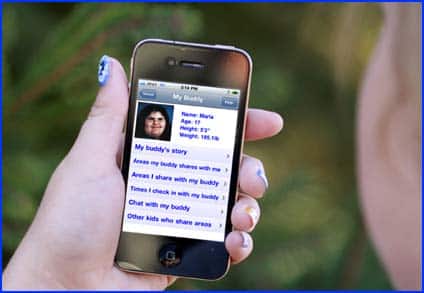
Surveys of the habits of American youth between the ages 13 and 17 find that half of them use social media on a daily basis. The American Heart Association (AHA), in a statement that will be published in the January issue of its journal, Circulation, recommends including social media in programs designed to prevent and manage childhood obesity. They think it would behoove the medical establishment and the makers of health policy to pay more attention. It is obvious that social media can be a powerful tool.
However, Salynn Boyles tells us:
The group concluded that the studies have been mixed, and more research is needed to develop strategies for optimizing the use of Web-based interventions in the fight against childhood obesity.
The AHA statement also noted:
Parental involvement and online interaction with counselors and peers led to greater success for overweight and obese children and teens in some studies.
Dr. Jennifer S. Li is division chief of pediatric cardiology at Duke University Medical Center and one of the study authors. Boyles learned from Dr. Li that when children and teens participate in online intervention, the success rate is greater when parents, counselors, and peers are involved in the process. It takes a village to lose some pounds.
The study brought to light a big paradox. One of the perceived causes of childhood obesity is screen time — the amount of time children spend sitting still with either television or, increasingly, a computer. But these online programs require a certain amount of screen time. So one of the challenges is how to keep the intervention that is designed to help from becoming part of the problem.
The AHA writing group puts it this way:
Because of their limited capacity for self-regulation and susceptibility to peer pressure, adolescents can be at risk as they navigate social media.
And there is more to it than just kids wasting time comparing their favorite brands of shoes on Facebook. The lure of the Internet is equally dangerous for a smart kid, who can get interested in a subject and go down a research rabbit hole that can last for hours.
Boyles, former senior editor for Henderson Publications (which publishes medical newsletters), also interviewed Dr. Pretlow and asked about such things as his presentation at the European Congress on Obesity, and the Weigh2Rock website. The site is viewed by kids, teens, parents, and health care professionals, between 50,000 and 100,000 times per month. A lot of visitors post on the site, and they like to stay anonymous. Dr. Pretlow is quoted:
What most kids who are overweight can’t do in the real world is talk about their weight with anyone. They don’t talk about it at school, or with their friends, or at home because they are too embarrassed. They don’t want to call attention to it. Ever.
The startling fact is that 99% of Weigh2Rock visitors are “lurkers” who never post. But this doesn’t make the experience any less powerful or useful. Kids derive a great deal of comfort from knowing that so many others feel the same way they do and have the same difficulties. They are educated by their peers, and it really seems to make a difference — it must, because they keep coming back for more.
The AHA report is concerned with “Internet-based interventions designed to promote weight loss, physical activity, and healthy eating.” But as Childhood Obesity News has pointed out so many times, exercise and nutrition don’t seem to be doing the job of ending childhood obesity. When it comes to social media, one is different — Dr. Pretlow’s “W8Loss2Go” application (link is PDF) for the iPhone, which actually helps kids become unaddicted to their problem foods.
Your responses and feedback are welcome!
Source: “Social Media May Help Fight Childhood Obesity,” WebMD, 12/04/12
Source: “Social media may help fight childhood obesity,” Heart.org, 12/03/12

 FAQs and Media Requests:
FAQs and Media Requests: 











